A group of concerned individuals and organizations collaborated to clean up parts of the Cape Coast beach in Ghana on Saturday, December 2, 2023. The team consisted of Spinoza, Love for Science, and the Nyansapow Leo Club, who worked together to clear trash from the Ola beach area in Cape Coast.
Spinoza, who came up with the idea, explained that he was unhappy with the amount of trash he saw on the beach every morning when he went jogging. He believed that a beach clean-up would help make the area look more presentable.
“Every time I go jogging, I see the filth along the beach, and it’s an eyesore. I thought that collaborating with like-minded individuals would work, and I am glad that the Nyansapow Leo Club and Love for Science, along with others, supported the idea,” he told Love for Science.
Spinoza also emphasized that beach clean-ups alone would not be enough to sustain the effort, and that education was needed to raise awareness and discourage people from littering the beaches.
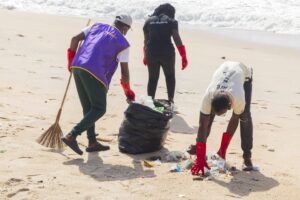
After cleaning up the area, the group gathered to evaluate the waste they had collected. The waste consisted mainly of diapers, shoes, rubber, foam, glass, sticks, cloths, and plastics. It is worth noting that plastics make up the majority of the waste collected.
It is alarming to know that every year, 14 million metric tons of plastic waste are dumped into our oceans, according to the International Union for Conservation of Nature (IUCN). This plastic waste constitutes 80% of all marine debris, from surface waters to deep-sea sediments. The IUCN also warns that plastic waste breaks down into tiny particles known as microplastics or nanoplastics due to natural factors such as solar UV radiation, wind, and currents. Consequently, marine creatures may accidentally consume these particles, which can have serious consequences not only on their health but also on the entire ecosystem.
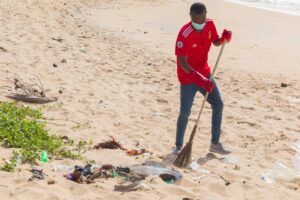
Melody Dziedzorm, a service chairperson of the Nyansapow Leo Club added that keeping a good environment is one of the focuses of the Leo Club. She stressed the need to do more campaigns, either door-to-door or in communities, to educate people on why and how to keep the beaches clean. “I am sure it will get dirty again soon, and so there is the need to do more education to make the beach a good place for us all,” she noted.
Based on a report from the World Economic Forum, Ghana produces around 840,000 tonnes of plastic waste annually, but only about 9.5% of this is collected for recycling. Unfortunately, most of this plastic waste ends up in the ocean, posing a threat to the environment. In addition to spoiling the aesthetic value of the beach, plastic pollution in the sea endangers marine life by causing suffocation and entanglement and also contributes to climate change.
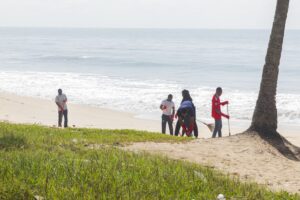
Dennis Baffour-Awuah, from Love for Science, believes that involving more organizations, institutions, and NGOs will have a positive impact on the cause. He also urged all public organizations responsible for maintaining clean beaches to be more responsible.
The group plans to organize more beach clean-ups and initiate public education campaigns aimed at ensuring clean beaches and promoting good marine life.
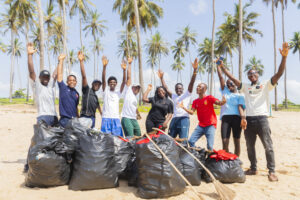

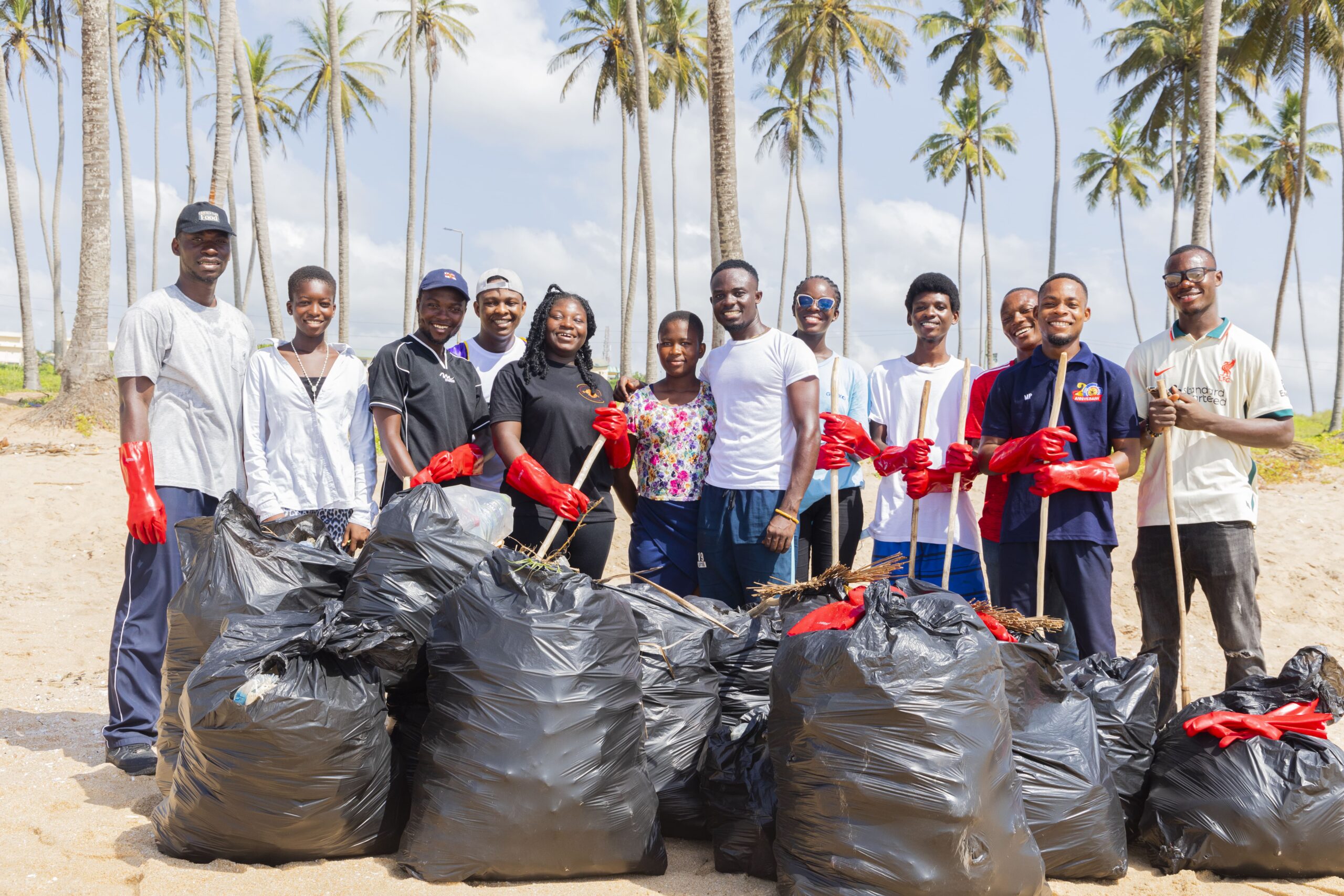


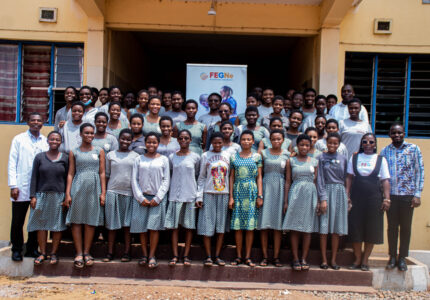
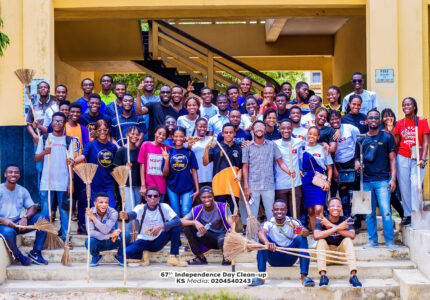
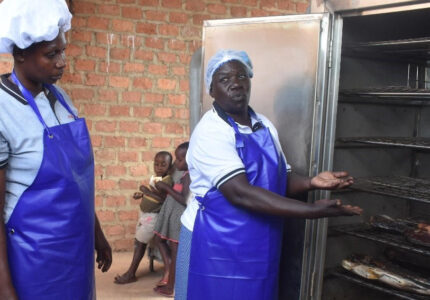
Emmanuel Kowfie
Great work. The world needs people like you for a better Africa